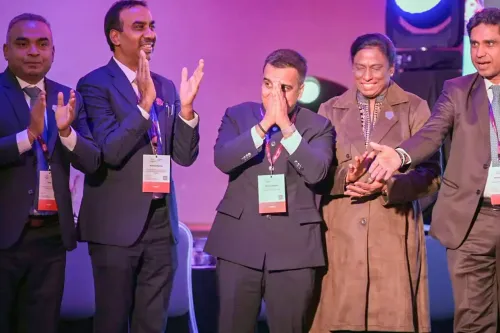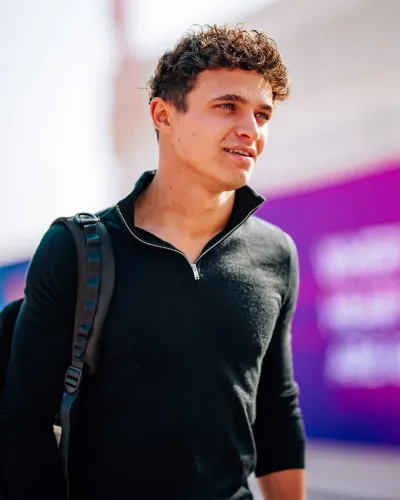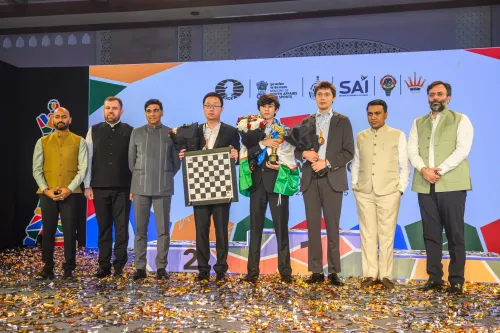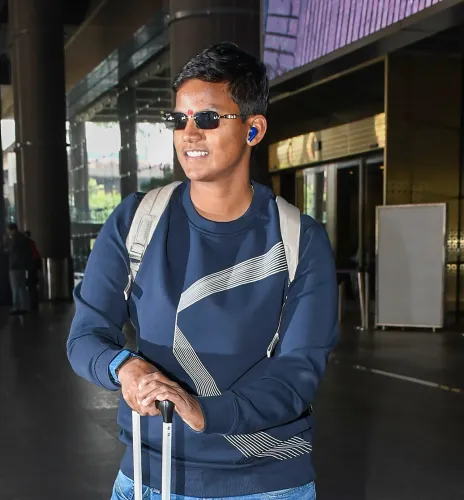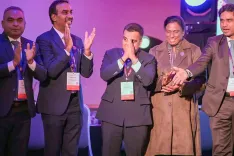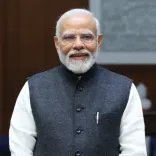I Keep Reminding Myself, <b>Sreejesh</b>, You're No Longer a Player
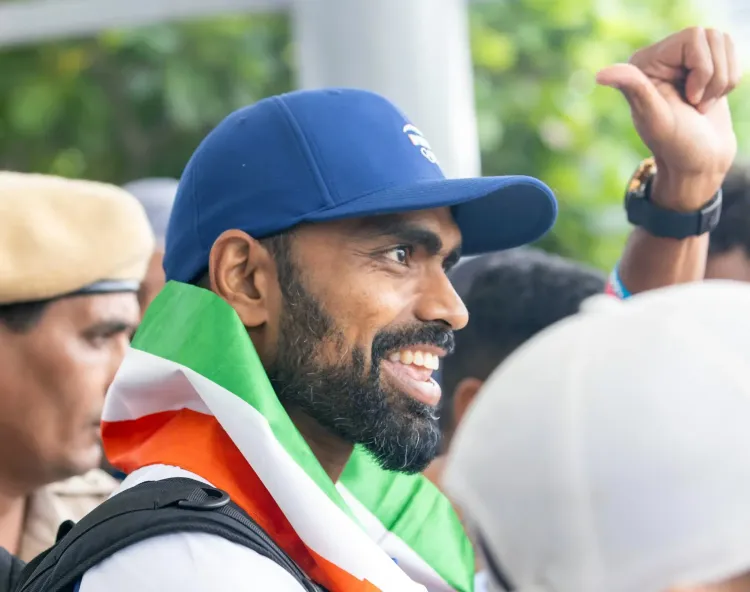
New Delhi, Dec 21 (NationPress) PR Sreejesh, the renowned Indian goalkeeper, who hung up his boots from international hockey following the Paris Olympics earlier this year, is now embracing a new challenge as the coach of the junior men's hockey team. He is finding significant success in this role. Nevertheless, the 36-year-old faced initial challenges in adjusting to the new environment and suppressing the player within him.
After securing his second consecutive Olympic bronze medal in Paris, Sreejesh took the helm of the junior men's team, with the prestigious Sultan of Johor Cup marking his debut coaching assignment. Under his leadership, the Indian squad clinched a bronze medal by triumphing over New Zealand in a nail-biting shootout. The seasoned player improved the medal's color in the following event - the Men's Junior Asia Cup 2024 - earlier this month, where Sreejesh's team defeated their fierce rivals Pakistan in the final, securing their fifth title.
"This has been an amazing experience for me. In my first tournament as a coach, we finished on the podium, which was fantastic. That tournament provided invaluable learning opportunities. We narrowly missed a spot in the finals due to a one-goal difference, drew a match, and won another via a shootout. We received two cards simultaneously, and I felt we lost a match. Overall, it was a fantastic tournament for learning," Sreejesh shared with IANS.
"We then moved on to the Junior Asia Cup, which was crucial for us as it served as a qualifying round for the Junior World Cup. While being the host means automatic qualification, I believe it’s essential to enter a tournament with the mindset of a champion. I emphasized to my players that they shouldn’t just see themselves as hosts or quota holders; they should approach the Junior World Cup like champions. And that’s exactly what they did throughout the tournament, playing exceptionally well," he added.
Sreejesh also discussed the challenges he faces as a coach, where he must manage the game dynamics from the sidelines, a position he is not entirely accustomed to.
"For me, this has been a tremendous experience because playing a match is entirely different from standing on the sideline, directing the players. As a player, you trust your abilities, and even if defenders or forwards make mistakes, you feel capable of covering for them. Here, you feel powerless. You train them, expecting top performance, and if something goes awry, you must hold back your frustration and encourage them to perform better. It's two completely different extremes, but I have enjoyed it. My experience with the team over the past decade has helped me manage these pressure situations effectively," said the veteran.
When asked about how he was convinced to take on the coaching role, Sreejesh explained that he was clear and mentally prepared for the decision.
"I realized it. I told myself, 'Sreejesh, you are no longer a player. You are now a coach with certain restrictions and limitations.' Accepting this was crucial before stepping into this role. Once you realize it, you can prepare yourself to accept it and ignore distractions," he expressed.
"That’s how it has been for me. At times, I have to remind myself, 'Come on, Sree,' and I keep a notebook during games where I write, 'Sreejesh, you are not a player anymore. You are a coach. Understand that.' This helps me refocus on the technical aspects of the game rather than getting caught up in emotions," Sreejesh elaborated.
Regarding his learnings in this new role, Sreejesh noted that managing all players in the squad and maximizing their potential is considerably more challenging than being a player.
"The best part is that you are no longer an individual. When you play, your focus is solely on your game. But as a coach, the team becomes paramount. All 40 players, along with the coaching staff, come under your responsibility. This responsibility is vastly different. As a player, your role is to perform your best to help the team reach the podium. As a coach, it's about ensuring they perform their best to elevate the team. I believe it's entirely different, and my extensive experience as a goalkeeper has prepared me to embrace this role effectively," he explained.
Sreejesh bid farewell to the Indian hockey team with enduring memories and a wealth of achievements, including two prestigious Olympic bronze medals. However, the veteran desired more than just a third-place finish in the grand event in Paris.
"I wasn't entirely satisfied with that outcome because I have always believed we deserved to be in the finals, if not to win the tournament. Unfortunately, that didn’t materialize. But when it comes to the Olympic Games, returning home with a medal is far more significant than coming back empty-handed. Personally, while I find that disappointing, as a player who competed in such a decisive match, winning a bronze or losing it holds a different sentiment. Ultimately, people will remember me as Sreejesh, the goalkeeper who said goodbye to the game with his bronze medal, and that will be their lasting image of me," Sreejesh concluded.

